Founded in 1920, the NBER is a private, non-profit, non-partisan organization dedicated to conducting economic research and to disseminating research findings among academics, public policy makers, and business professionals.



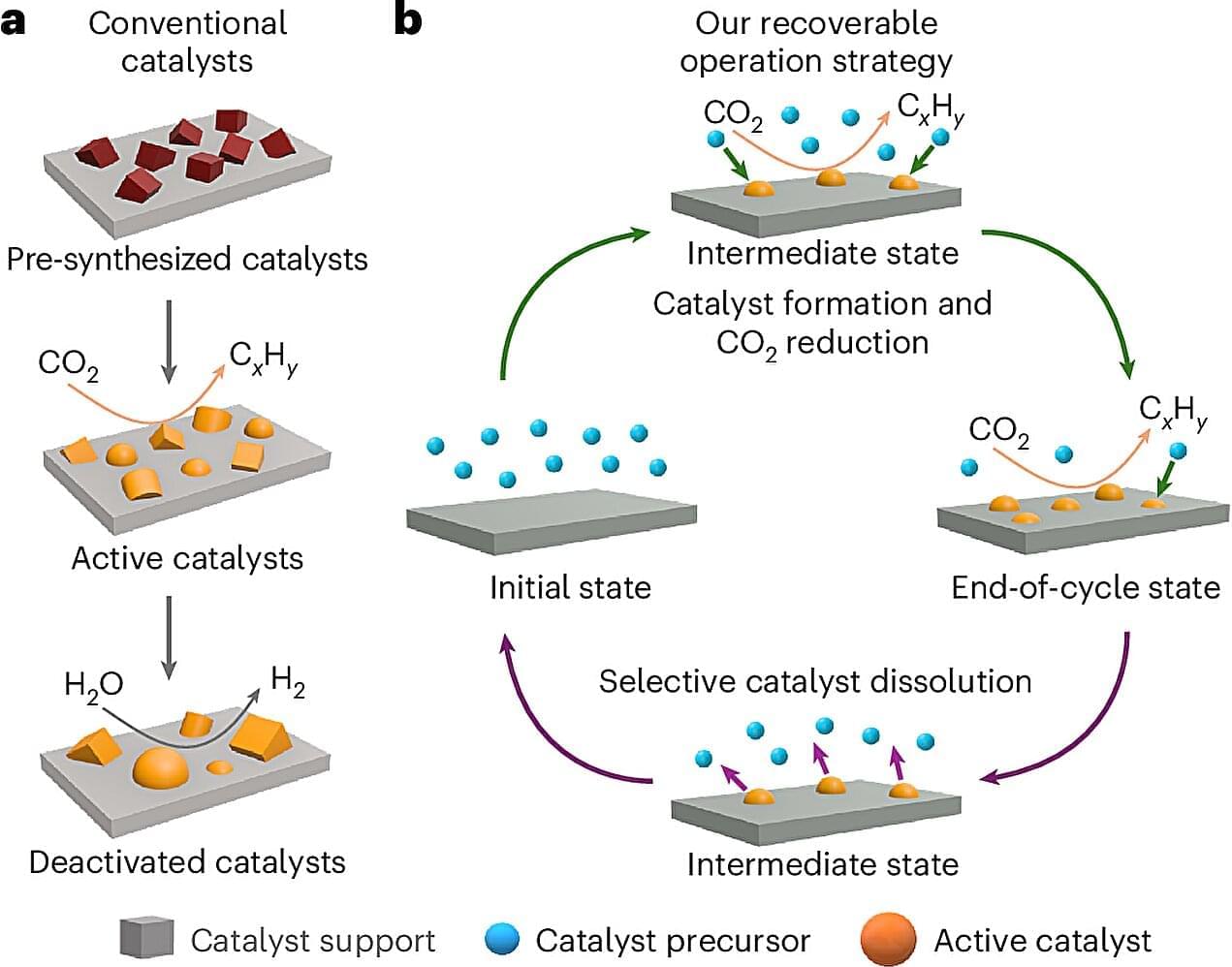
Carbon dioxide (CO2) is one of the world’s most abundant pollutants and a key driver of climate change. To mitigate its impact, researchers around the world are exploring ways to capture CO2 from the atmosphere and transform it into valuable products, such as clean fuels or plastics. While the idea holds great promise, turning it into reality—at least on a large scale—remains a scientific challenge.
A new study led by Smith Engineering researcher Cao Thang Dinh (Chemical Engineering), Canada Research Chair in Sustainable Fuels and Chemicals, paves the way to practical applications of carbon conversion technologies and may reshape how we design future carbon conversion systems. The research addresses one of the main roadblocks in the carbon conversion process: catalyst stability.
In chemical engineering, a catalyst is a substance that accelerates a reaction—ideally, without being consumed in the process. In the case of carbon conversion, catalysts play a critical role by enabling the transformation of CO₂ into useful products such as fuels and building blocks for sustainable materials.
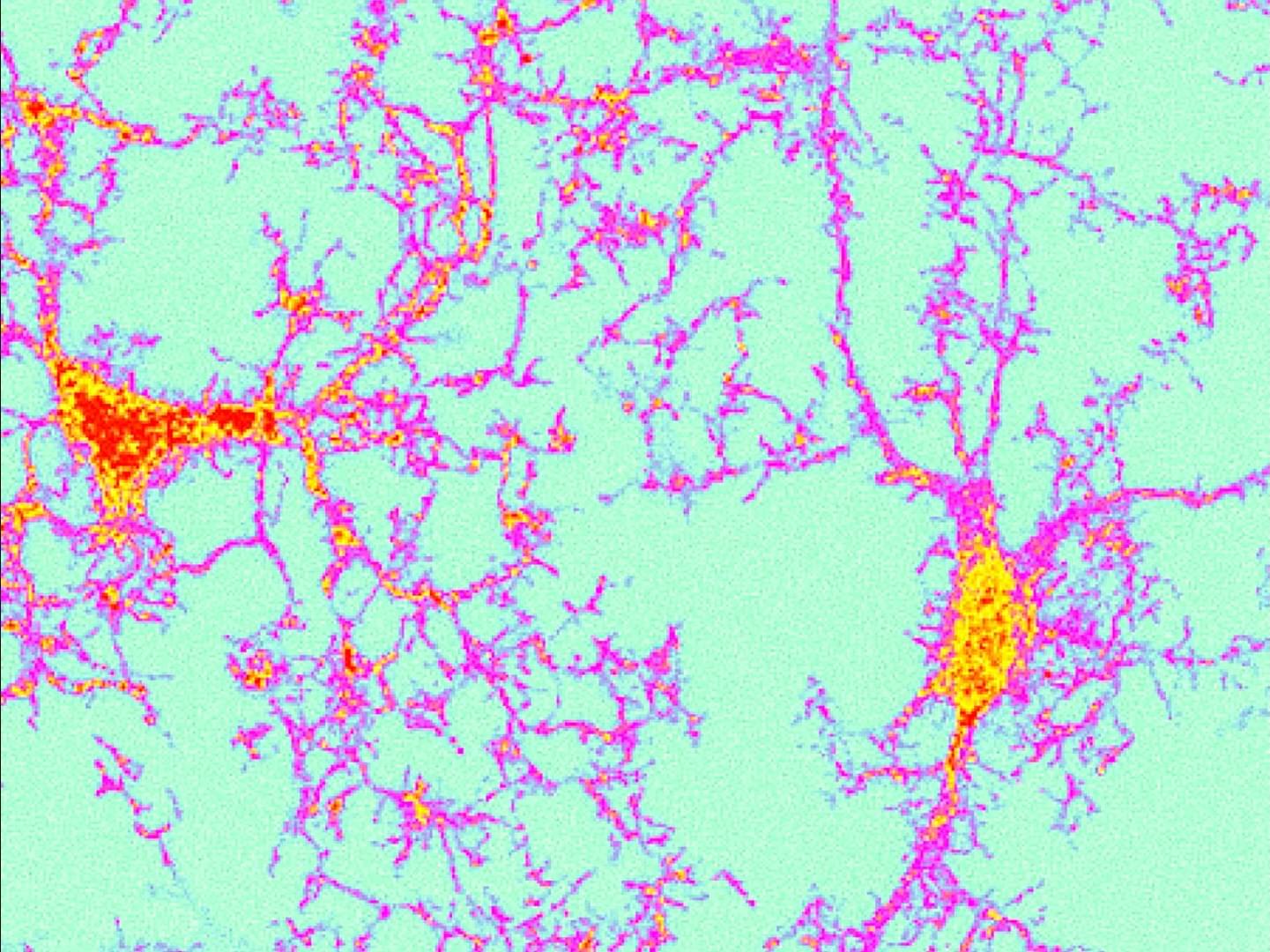
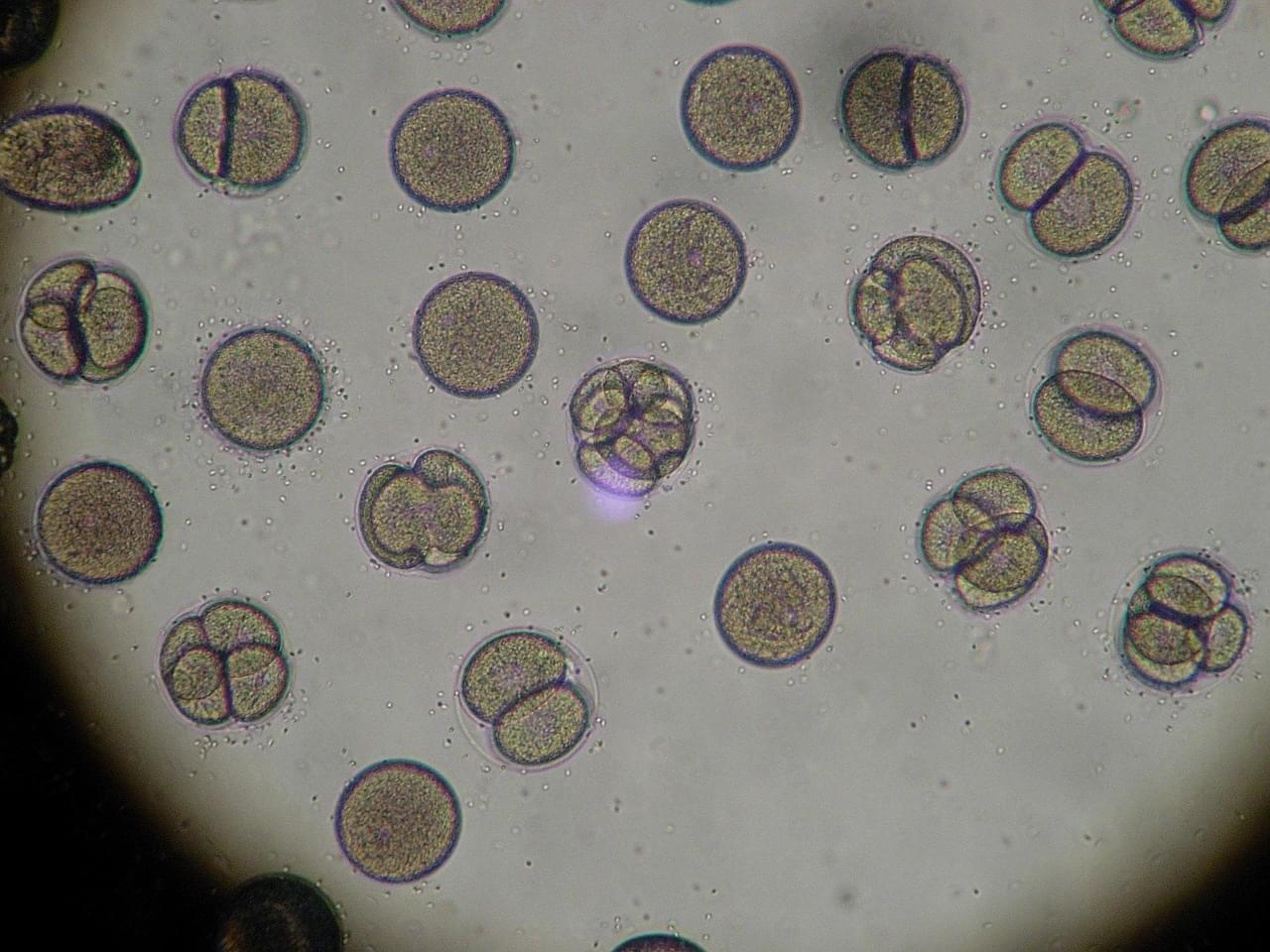
The immune system works to identify and target invading pathogens. Specifically, our bodies work to get rid of any harmful infections by employing a two-part immune response. The first wave of immunity is the innate immune system. This initial reaction is broad and non-specific with innate cells circulating throughout the body to detect foreign pathogens. These cells that are involved include neutrophils, macrophages, eosinophils, basophils, and dendritic cells. Once cells detect an issue, they alert the rest of the body to completely filter out the infection. Importantly, the second wave of immunity, or the adaptive immune system, elicits a strong, specific response that target pathogens the innate immune system cannot neutralize.
Adaptive immunity builds to generate robust protection against aggressive diseases. The cells that make up this response include B and T cells. B cells are mainly responsible for generating antibodies to neutralize and signal infections throughout the body. T cells are the drivers that get rid of disease. T cell activity destroys infected cells and other pathogens lingering throughout the body or site of infection. The adaptive immune response is also critical for immune memory. Once someone experiences a disease and recovers, adaptive immune cells will remember that pathogen next time it enters the body — this is how vaccines work. A patient is injected with a non-harmful virus to expose the immune system. Immediately, the body will respond and destroy the virus. However, a few T cells will also be generated to targeted similar viruses in the future. As a result, when a patient is exposed to the infection again, they will be protected and not experience symptoms.
T cells are critical for any disease or infection, including cancer. Many immunotherapies currently being develop involve activating and directing T cells to the site of the tumor. However, immunotherapies have limited efficacy due to various mechanisms around the tumor that suppress immunity. Scientists are working to understand T cell biology to develop better immunotherapies and more accurately predict treatment outcomes in patients.
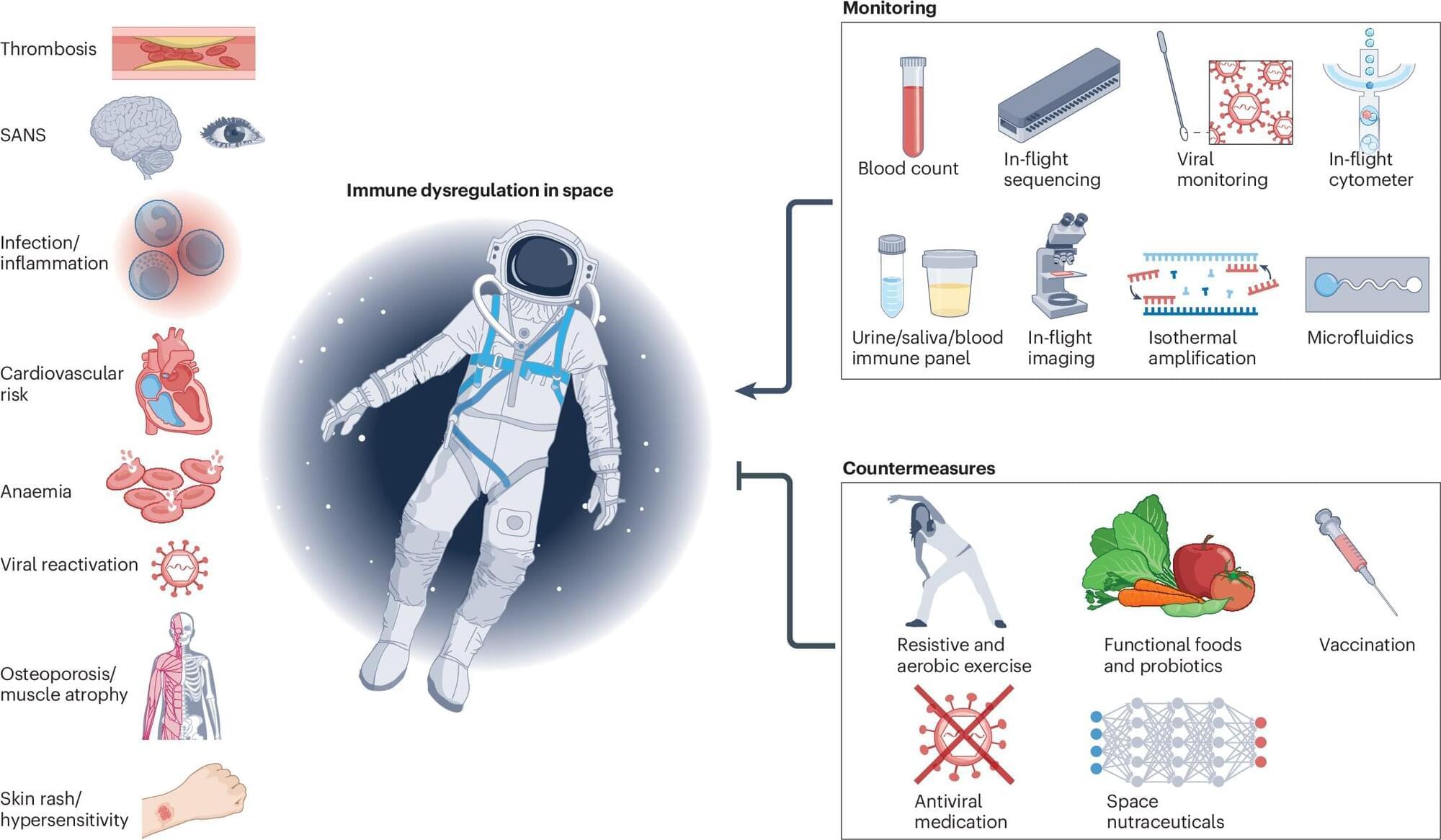
With the advent of commercial spaceflight, an increasing number of people may be heading into space in the coming years. Some will even get a chance to fly to the moon or live on Mars.
One of the major health risks associated with spaceflight involves the immune system, which normally fights off viruses and cancer. It’s already established that spaceflight weakens immunity; current and past astronauts report clinical issues such as respiratory illnesses and skin rashes. These issues may become even more serious on longer-term flights, such as to Mars.
To better understand the full scope of immunology during spaceflight, Buck Associate Professor Dan Winer, MD, working with colleagues linked to the National Aeronautics and Space Administration (NASA), the European Space Agency (ESA), Cornell University, the University of Pittsburgh, the University of Toronto, Embry-Riddle Aeronautical University, and others, have put together a comprehensive guide describing a full array of science linking spaceflight and the immune system.
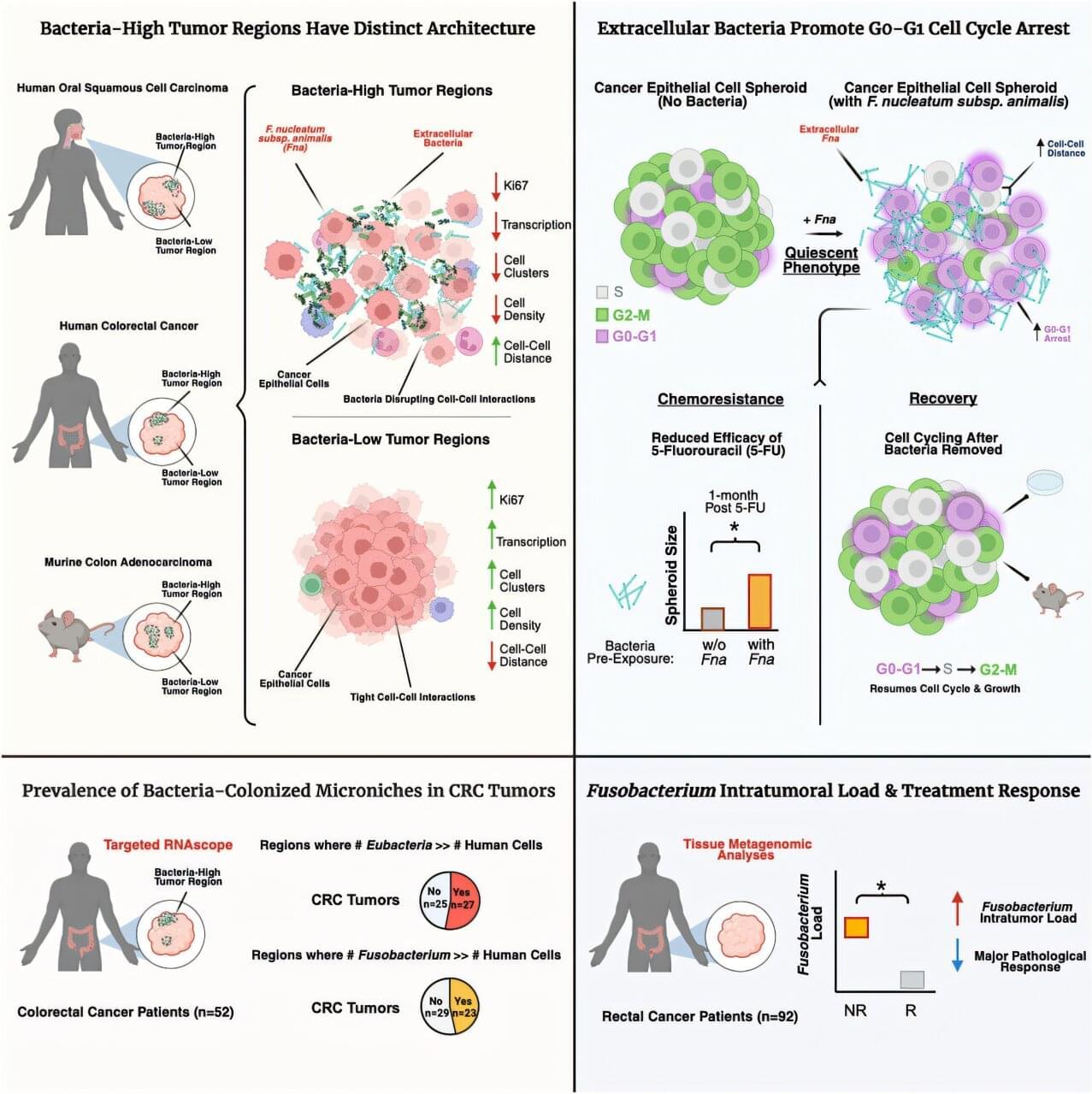
Researchers from The University of Texas MD Anderson Cancer Center have discovered a previously unknown mechanism that explains how bacteria can drive treatment resistance in patients with oral and colorectal cancer. The study was published today in Cancer Cell.
Tumor-infiltrating bacteria have been known to impact cancer progression and treatment, but very little is understood about how they do this. The new study shows how certain bacteria—particularly Fusobacterium nucleatum (Fn)—can induce a reversible state, known as quiescence, in cancer epithelial cells. This allows tumors to evade the immune system and resist chemotherapy.
“These bacteria-tumor interactions have been hiding in plain sight, and with new technologies we can now see how microbes directly affect cancer cells, shape tumor behavior and blunt the effects of treatment,” said corresponding author Susan Bullman, Ph.D., associate professor of Immunology and associate member of MD Anderson’s James P. Allison Institute.
Meet the caretaker AIs: guardians of planets, habitats, and civilizations. What happens when machines become the spirit and soul of the worlds they protect?
Checkout Rifftrax https://go.nebula.tv/rifftrax?ref=isa…
Watch my exclusive video The Fermi Paradox — Civilization Extinction Cycles: https://nebula.tv/videos/isaacarthur–…
Get Nebula using my link for 40% off an annual subscription: https://go.nebula.tv/isaacarthur.
Grab one of our new SFIA mugs and make your morning coffee a little more futuristic — available now on our Fourthwall store! https://isaac-arthur-shop.fourthwall…
Visit our Website: http://www.isaacarthur.net.
Join Nebula: https://go.nebula.tv/isaacarthur.
Support us on Patreon: / isaacarthur.
Support us on Subscribestar: https://www.subscribestar.com/isaac-a…
Facebook Group: / 1583992725237264
Reddit: / isaacarthur.
Twitter: / isaac_a_arthur on Twitter and RT our future content.
SFIA Discord Server: / discord.
Credits:
Caretaker AI & Genus Loci 2025 Edition.
Written, Produced & Narrated by: Isaac Arthur.
Editors: Ludwig Luska.
Graphics:
Bryan Versteeg.
Jeremy Jozwik.
Ken York YD Visual.
Kris Holland Mafic Studios.
Select imagery/video supplied by Getty Images.
Music Courtesy of Epidemic Sound http://epidemicsound.com/creator

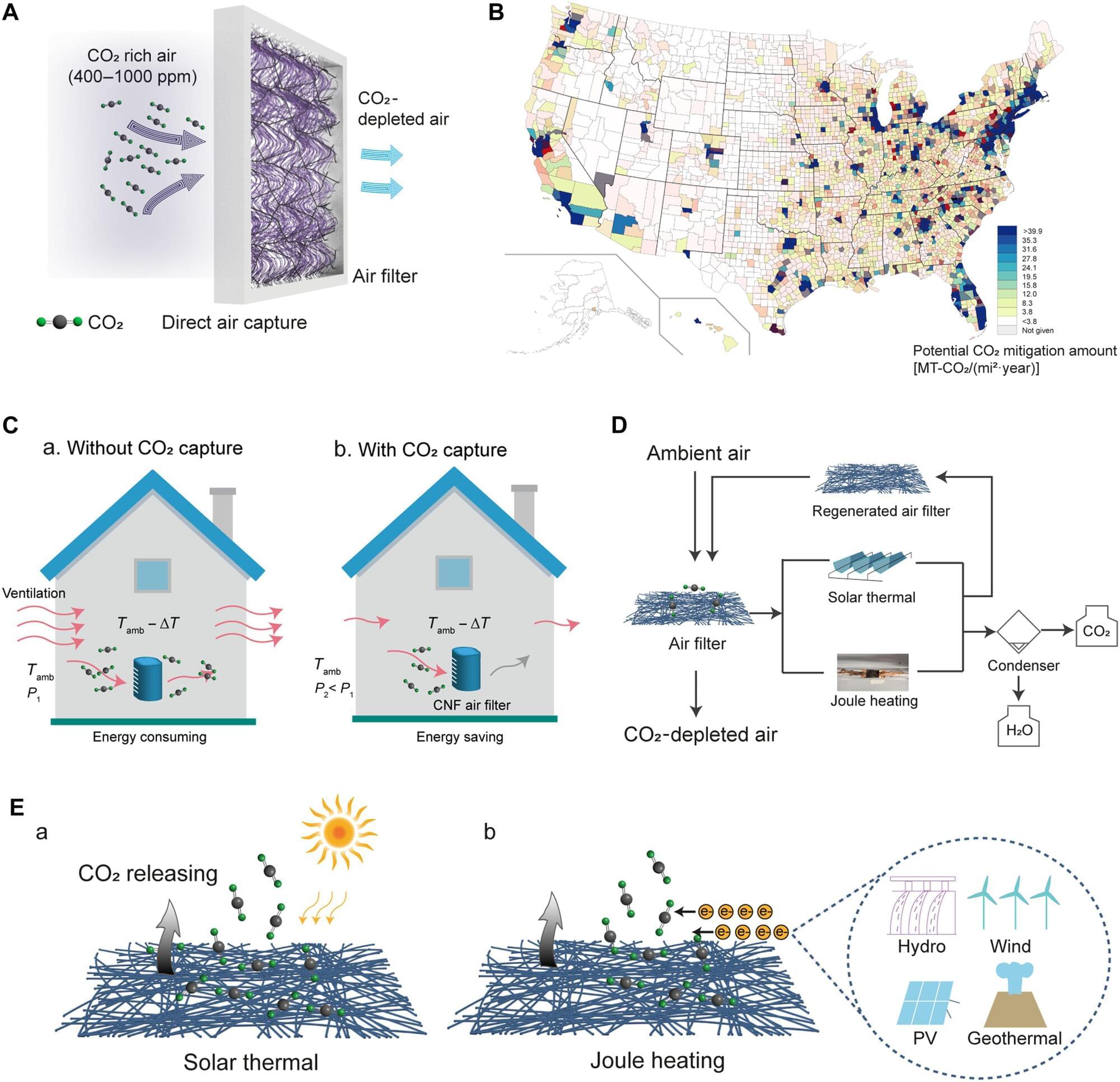
Despite decades of warnings and increasing efforts to fight climate change, global carbon emissions are still rising. While cutting emissions from the source is a common way we address this problem, another crucial strategy is actively removing carbon from the atmosphere. Current centralized DAC (direct-air-capture) plants are expensive and take up a lot of land, so scientists have developed a carbon dioxide-catching air filter that can fit into existing ventilation systems of homes and offices around the world.
The researchers describe their filter in a paper published in Science Advances. It is made of tiny carbon threads known as nanofibers that are coated with a polyethylenimine polymer. This combination makes an incredibly effective carbon sponge that captures carbon dioxide molecules from the air, even at low concentrations. The filter can also be cleaned by solar heating or low-energy electricity methods.
The team put their new carbon filter through its paces to see how well it worked. First, they checked how much it could soak up carbon by placing it in a flow system and passing air with a known concentration of carbon dioxide through it. The filter proved highly selective and fast, capturing the molecules and letting the rest of the air pass through.